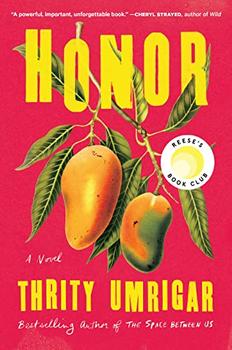Page 6 of 6
There are currently 38 member reviews
for Honor
-
Margot P. (Mandeville, LA)
Tragic Tale of Religious Persecution (with a romance)
Umrigar's latest novel of India tackles a lot of big topics in a fairly short book: religious persecution, childhood trauma, poverty, government corruption, misogyny, violence and murder. The main character Smita, a journalist, returns to Mumbai, for the first time since leaving for America at the age of 14. Lots of past secrets are slowly revealed as Smita attempts to bring justice for a Hindu woman who was horribly burned during the "honor killing" of her Muslim husband. The story is fascinating, but there are quite a few two-dimensional characters and at times I felt the writing did not elicit the emotional response that the horrible events should have. Won't comment on the ending to avoid spoilers other than to say that the last minute airport drama felt completely unoriginal and utterly predictable.
-
Linda S. (Cranberry Township, PA)
Not Thrity Umrigar's Best
After having read two other books by the author, I admit I was very excited to read an advance copy of Honor. However, this novel did not impress me quite as much. From the first pages, I felt I was reading the writing of a beginning author. But other times the writing reminded me of an author who has written so much about the same subject the words became almost trite. The events that take place in the story were emotionally charged, yet although I empathized with the suffering of the characters, I could not say that I felt emotional while reading the story. It was predictable and difficult to plod through and some of the political statements and inferences were contradictory and transparent. Just average writing from someone who can write better than this.
-
Beverly B DeFabio
Honor ?
Although I found the story engaging, sometimes the emotional impact was dulled by the prosaic, almost soap opera like writing. The two main characters were very well developed; however the "secondary" players (not so secondary in the actual story) were less developed making me wonder if this was the point all along: to point out the extreme differences between the haves and have-nots. Smita's rediscovery of home was completely foreseen almost from page one.
